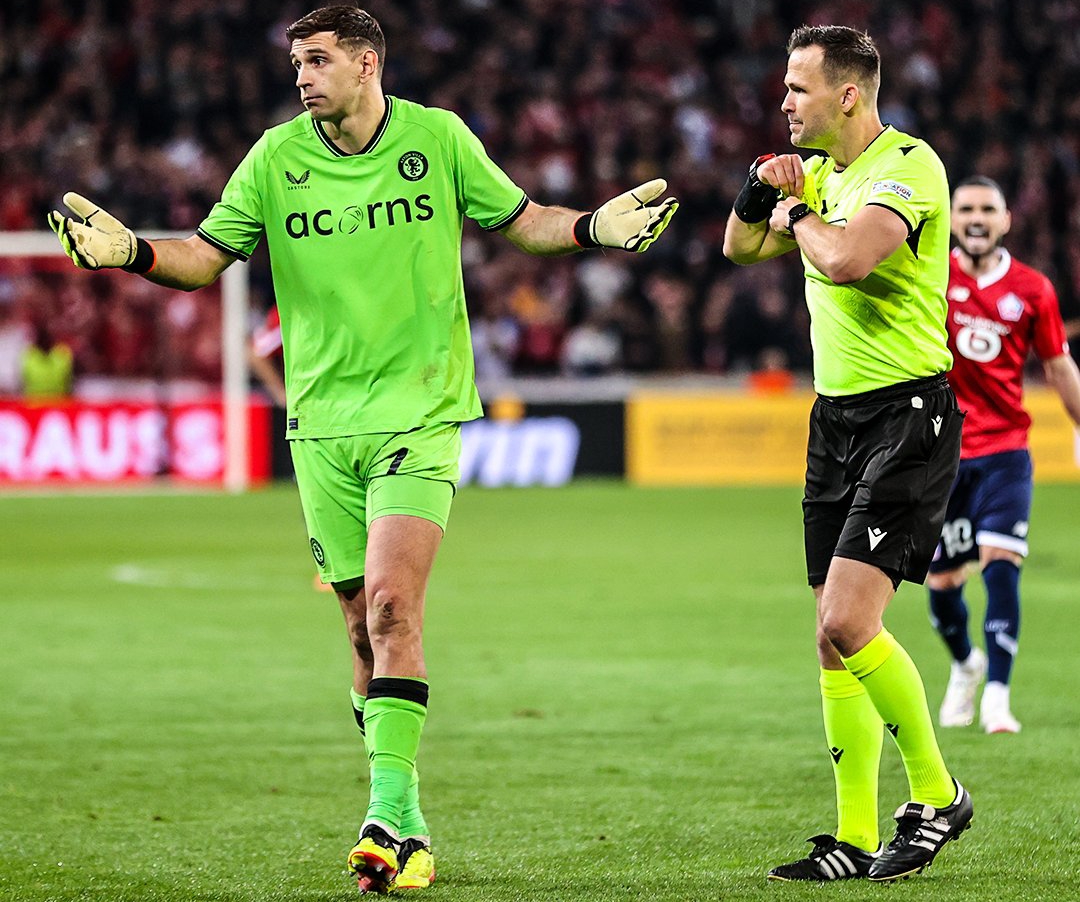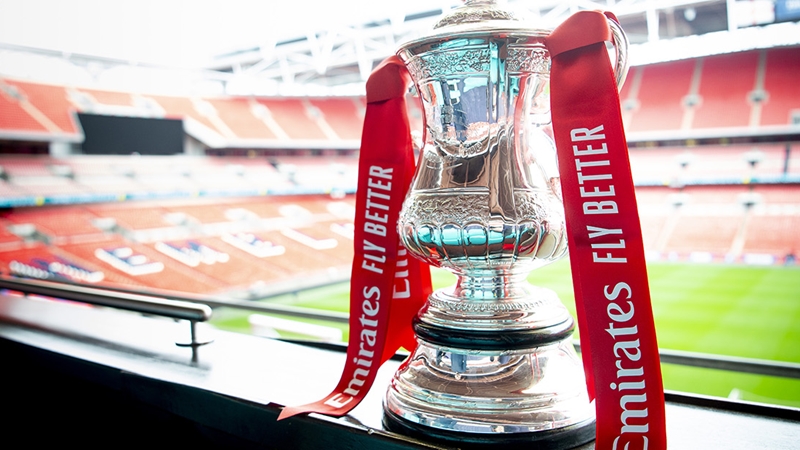The English Premier League, usually known as the EPL, is the highest level of the English football league system. It is contested by 20 clubs and follows the English Football League’s promotion and relegation system (EFL).

Typically, seasons last from August to May, with each team playing 38 games (playing all 19 other teams both home and away).
The FA Premier League was created on February 20, 1992, after clubs in the Football League First Division decided to break away from the Football League, which was founded in 1888, to take advantage of a lucrative broadcast rights sale to Sky.
The Premier League is the most-watched sports league in the world, with 643 million homes and a potential TV audience of 4.7 billion people watching it in 212 countries.
Since the Premier League’s debut in 1992, fifty clubs have competed: 48 English and two Welsh clubs. Manchester United (13), Chelsea (5), Manchester City (5), Arsenal (3), Blackburn Rovers (1), Leicester City (1), and Liverpool (1) have all won the title (1).
History of the EPL
The EPL emerged from a period of decline in English club football. The league was known for its hooligans, and attendance was at an all-time low. The league began without television coverage in 1985-86 due to a lack of agreement between the parties. At this time, the country’s leading teams began discussing the formation of a new independent league.
With the formation of the EPL, the top-tier division was historically separated from the Football League. The new league would not be affiliated with the Football League, which has been around since the 1880s. It would, however, remain a component of the league system, with the worst-placed teams in the Premier League being relegated to the second tier and the best-placed teams being promoted from the second tier to the Premier League.
New contracts were signed with television companies that recognized the game’s tremendous potential. Sky was given the television rights, and the program was expanded to five-hour blocks. The concept was heavily influenced by NFL broadcasting in the United States, with features such as Monday Night Football being presented to the television audience.
League structure
The EPL has been the top tier of the English football league system since the 1992-1993 season (before that Division One had the same function). The so-called English Football League incorporates the next three tiers (EFL). After that, there are two more tiers that are members of the National League. Table 1 provides an overview of the current English league structure.
| Club | Tier |
|---|---|
| Premier League | 1 |
| Championship | 2 |
| League One | 3 |
| League Two | 4 |
| National League | 5 |
| National League North / South | 6 |
Below National League North and National League South follows several other tiers divided by regions.
Players and teams
Teams with the most championships
From 1993 through 2020, statistics on all English clubs that have won the Premier League.
| Club | Titles |
|---|---|
| Manchester United | 13 |
| Chelsea | 5 |
| Manchester City | 4 |
| Arsenal | 3 |
| Blackburn Rovers | 1 |
| Leicester City | 1 |
| Liverpool | 1 |
See Clubs and English Football League titles for information on seasons after the league changed names. The ranking would look different if all seasons dating back to 1888 were included. Manchester United would retain their title with 20 victories, while Liverpool would finish second with 18 victories.
Premier League winners year by year
Since the first season, all winners have accumulated points per season.
| Season | Winner | Points |
|---|---|---|
| 2019-20 | Liverpool | 99 |
| 2018-19 | Manchester City | 98 |
| 2017-18 | Manchester City | 100 |
| 2016-17 | Chelsea | 93 |
| 2015-16 | Leicester City | 81 |
| 2014-15 | Chelsea | 87 |
| 2013-14 | Manchester City | 86 |
| 2012-13 | Manchester United | 89 |
| 2011-12 | Manchester City | 89 |
| 2010-11 | Manchester United | 80 |
| 2009-10 | Chelsea | 86 |
| 2008-09 | Manchester United | 90 |
| 2007-08 | Manchester United | 87 |
| 2006-07 | Manchester United | 89 |
| 2005-06 | Chelsea | 91 |
| 2004-05 | Chelsea | 95 |
| 2003-04 | Arsenal | 90 |
| 2002-03 | Manchester United | 83 |
| 2001-02 | Arsenal | 87 |
| 2000-01 | Manchester United | 80 |
| 1999-00 | Manchester United | 91 |
| 1998-99 | Manchester United | 79 |
| 1997-98 | Arsenal | 78 |
| 1996-97 | Manchester United | 75 |
| 1995-96 | Manchester United | 82 |
| 1994-95 | Blackburn Rovers | 89 |
| 1993-94 | Manchester United | 92 |
| 1992-93 | Manchester United | 84 |
The league consists of 20 clubs (except for the first three seasons, when 22 teams were included), who play each other twice (at home and away) per season for a total of 380 games. Manchester City won the most points by a team in a season with 100 (2.6 per match) in the 2017-18 season.
Leading goal scorers
With 440 goals during his time at Newcastle, Alan Shearer owns the Premier League record. Andy Cole (187 goals), Wayne Rooney (208 goals), Frank Lampard (177 goals), Harry Kane (181 goals), Robbie Fowler (163 goals), and Michael Owen are among the highest scorers (150 goals). Henry is particularly impressive, scoring 0.68 goals per match.
| Rank | Player | Goals | Club/s |
|---|---|---|---|
| 1 | Alan Shearer | 260 | Blackburn, Newcastle |
| 2 | Wayne Rooney | 208 | Everton, Manchester United |
| 3 | Andy Cole | 187 | Newcastle, Manchester United, Blackburn, Fulham, Manchester City, Portsmouth |
| 4 | Sergio Aguero | 184 | Manchester City |
| 5 | Harry Kane | 181 | Tottenham |
| 6 | Harry Kane | 177 | West Ham, Chelsea, Manchester City |
| 7 | Thierry Henry | 175 | Arsenal |
| 8 | Robbie Fowler | 163 | Liverpool, Leeds, Manchester City |
| 9 | Jermain Defoe | 162 | West Ham, Tottenham, Portsmouth, Sunderland, Bournemouth |
| 10 | Michael Owen | 150 | Liverpool, Newcastle, Manchester United, Stoke |
Football League Championships
Statistics for all English clubs that have won the Football League, including the Premier League, from 1888 through 2020, including the number of titles won and the first winning season.
| Club | Titles | 1st title |
|---|---|---|
| Manchester United | 20 | 1907-08 |
| Liverpool | 19 | 1900-01 |
| Arsenal | 13 | 1930-31 |
| Everton | 9 | 1890-91 |
| Aston Villa | 7 | 1893-94 |
| Sunderland | 6 | 1891-92 |
| Manchester City | 6 | 1936-37 |
| Chelsea | 6 | 1954-55 |
| Sheffield Wednesday | 4 | 1902-03 |
| Newcastle | 4 | 1904-05 |
| Blackburn | 3 | 1911-12 |
| Huddersfield Town | 3 | 1923-24 |
| Wolverhampton | 3 | 1953-54 |
| Leeds United | 3 | 1968-69 |
| Preston North End | 2 | 1888-89 |
| Burnley | 2 | 1920-21 |
| Portsmouth | 2 | 1948-49 |
| Tottenham | 2 | 1950-51 |
| Derby | 2 | 1971-72 |
| Sheffield United | 1 | 1897-98 |
| West Bromwich | 1 | 1919-20 |
| Ipswich Town | 1 | 1961-62 |
| Nottingham Forest | 1 | 1977-78 |
| Leicester City | 1 | 2015-16 |
There have been 24 English league champions in all.
Until the 1892-93 season, when Division Two was established, there was only one-tier. The Third Division was established for the 1920-21 season, and the Fourth Division was established for the 1958-59 season. Before the 2004-05 season, Divisions 1, 2, and 3 were renamed The Championship, League 1, and League 2.
The spectators
Soon after the EPL began, standing on the terraces was prohibited, and instead, the entire audience was required to sit to watch the games.

Stadium capacity in the Premier League
Table 4 shows the total capacity of all EPL club stadiums (based on the teams who competed in the 2016–2017 league season). With a capacity of nearly 70,000, Manchester United’s Old Trafford is the largest stadium in the league.
We can use Manchester United as an example to illustrate the capacity in proportion to the actual audience per match. The average attendance for the 2015/2016 season was 75,279. The tickets are typically offered as part of a season package, but a match-day ticket in the 2015/2016 season ranged from £22 (Leicester) to £52 (Manchester City) (Chelsea).
Seasonal attendance
The EPL matches are highly anticipated, and the major stadiums are frequently sold out or nearly sold out. The list below depicts total attendance at games over some seasons.
| Attendance | |
| Highest PL single match attendance | 83,222 – Wembley Stadium, Tottenham Hotspur v Arsenal (10 February 2018) |
| Highest PL season average attendance | 75,821 – Old Trafford, Manchester United (2006/07) |
| Lowest PL single match attendance | 3,039 – Selhurst Park, Wimbledon v Everton (26 January 1993) |
| Lowest PL season average attendance | 8,353 – Selhurst Park, Wimbledon (1992/93) |
The funds
The Premier Competition is a highly lucrative league. The broadcast contracts are quite expensive and bring in a lot of money for the league and the clubs. The matches are broadcast in over 180 different countries. The revenue disparity between the Premier League and the EFL Championship is enormous (within the 15 years following the initiation of the Premier League, the collective revenues for the clubs would grow over 1000 percent ).
There are three sections to the broadcast payments: 1) Equal share payments – the largest portion, which is split equally among all teams; 2) Facility fees – payment for a club’s participation in a live match; 3) Merit payments – based on performance.
Ticket sales to matches also produce revenue, and ticket prices have risen dramatically during the Premier League’s existence.
The Premier League’s success made its members wealthy, and foreign players and managers were imported in unprecedented numbers in England. It would forever alter the nature of the league’s game.
European Cups Qualification
The Premier League has four Champions League spots and one Europa League spot (winners of the FA Cup and the Capital One Cup also qualify for the Europa League).

Relegations
The bottom three teams in the table (numbers 18-20) will be relegated to the EFL Championship, the second tier.
Premier League timeline
- 1888 Football League (predecessor to Premier League) is established.
- 1992 The league is renamed as Premier League.
- 1995 The league is reduced from 22 to 20 clubs.








